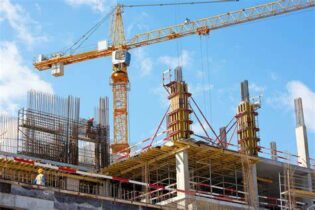Considering how much the US remains a key pillar of the global economic order, it is not surprising that there is so much focus on how the world’s leading economy plans to avert what has become known as the fiscal cliff.
This refers to a toxic mix of government spending cuts and expiring tax cuts due to come into effect when the clock strikes midnight on December 31. If this comes to pass, the US economy is likely to head straight for another recession, with serious implications for unemployment and investor confidence. So as things go, the clock is ticking for the White House and Congress to defuse the highly explosive situation. If it goes unresolved, the financial turmoil of 2008 will look like a walk in the park. In that context, perhaps it will be wise for us to take a cue from the US fiscal woes because closer to home, while we have no fiscal cliff to speak of, we have an economy that has long gone over a cliff. The challenge now is how to pull it back up. Last week we learnt that the economy barely grew in the third quarter, registering only 1.2 percent growth as the mining sector went into free fall. This is sobering news to the informed, but to the uninitiated – especially in the government’s ranks – the latest figures would most possibly be seen as just another speed bump on the road to prosperity, because we are neither the US nor Europe. Alas! The reality is that we have an economy that should be growing at what now looks like a near impossible 7 percent in order to stem rising unemployment. Spare a thought for the thousands of matriculants who will have joined the millions of jobless South Africans long before the Christmas turkey even leaves the oven. Last week’s news of the sharp deterioration in the October trade balance should also ring alarm bells. It is not by some statistical quirk that South Africa recorded its biggest ever monthly trade deficit in October – to the tune of R21.19 billion. This sort of figure merely highlights the damage caused by the industrial unrest that disrupted mining, leading to our net imports sky-rocketing in October. What this all means is that South Africa is going to have to rely heavily on foreign portfolio flows to finance its current account deficit.In other words, with a savings rate of close to nothing and an economy beset with structural and policy rigidities, we might have to continue living on handouts.
The problem is that whatever capital is thrown our way, those who invest it will want a meaningful return – and that really is why interest rates are unlikely to go much lower any time soon. And just when you thought things could not get any worse, it is worth noting that South Africa currently ranks number one in the world on the latest global misery index (at 28.70 percent), followed by Spain (at 28.52 percent). This index measures the economic well-being of a country by taking into account the sum of the unemployment and the inflation rates. A rise in misery index means a worsening in the state of that particular economy. It is probably a helpful sign that Reserve Bank governor Gill Marcus took time out of her schedule last Wednesday to try to talk some sense to union bosses. She described anaemic growth in the third quarter as a “self-inflicted” wound in an address to National Union of Metalworkers of SA leaders. It is one of many such rounds that Marcus will have to do in the coming months because where she sits, there is very little reason to sugarcoat the truth. And the cold truth is that our economic engine is backfiring, and the sooner that the government and business accept this, the better. To build or rebuild the economy has to begin by both sides acknowledging that neither entity has a monopoly on ideas about how to get us out of the economic ditch that the country is in. In the wake of the latest economic figures, there is even some concern that South Africa might even find itself confronted by stagflation – a menace that manifests itself via a mix of low growth, relatively high unemployment and a run-up in prices or inflation. It is a position that no central banker wants to be in, more so when politicians, who should be providing sound leadership, are pre-occupied with saving their own political skin. http://www.iol.co.za/business/opinion/columnists/sa-economy-is-in-free-fall-1.1434296





